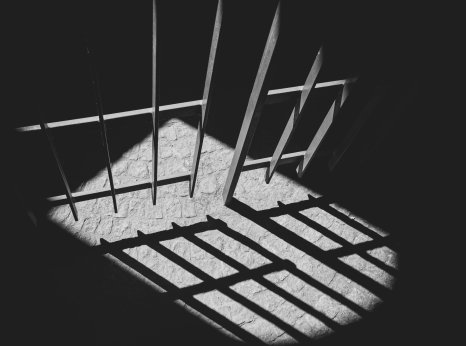Georgia: Actor Protester Jailed, Denied Justice

Actor Andro Chichinadze is a well-known public figure in Georgia, an outspoken government critic and participant in pro-European protests in November-December 2024. One of his co-defenders, comedian Onise Tskhadadze, is also a public figure. In addition to the human rights violations, including fair trial breaches suffered by all 11 co-defendants, Andro Chichinadze and Onise Tskhadadze appear to have been singled out for public attacks by government officials, seemingly because of their visibility as protest figures to create a chilling effect.
The prosecution has charged the 11 co-defendants with “group violence” targeting the police, a “grave crime” under Article 225 of Georgia’s Criminal Code, punishable by up to 10 years (for “organizers”, up to eight for “participants”). However, it has failed to prove that the actions of which they stand accused (throwing “objects” towards the police) were premeditated, coordinated, or connected to a larger plan – key elements of the legal definition of this crime. There is no evidence that the relevant actions have caused any harm or damage. Moreover, during the trial the prosecution’s witnesses, including police officers who claimed to have been the victims of “group violence”, were not able to identify Andro Chichinadze, nor Onise Tskhadadze, in their testimonies as the individuals who had committed any violent acts against them. The other nine co-defendants are: Jano Archaia, Ruslan Sivakov, Luka Jabua, Guram Mirtskhulava, Valeri Tetrashvili, Giorgi Terishvili, Irakli Kerashvili, Revaz Kinadze, and Sergei Kukarchuk.
Protests have been widespread in Georgia for over a year, against the Transparency of Foreign Influence Bill in April and May 2024, the disputed election results in October same year, and the suspension of the EU accession process in November-December 2024. Police used unlawful force to disperse overwhelmingly peaceful protesters, including arbitrary arrests, beatings and other ill-treatment, resulting in injuries and the arbitrary detention of hundreds of protesters. Police also pursued protesters outside of demonstrations, conducting searches and arrests in their homes and offices. During the November-December protests alone, some 500 protesters were reportedly detained. Amnesty International has documented widespread use of torture and other ill-treatment of detained protesters, misuse of criminal justice to target political opposition and other dissent, and the use of gendered reprisals, including violence, against women protesters in Georgia.